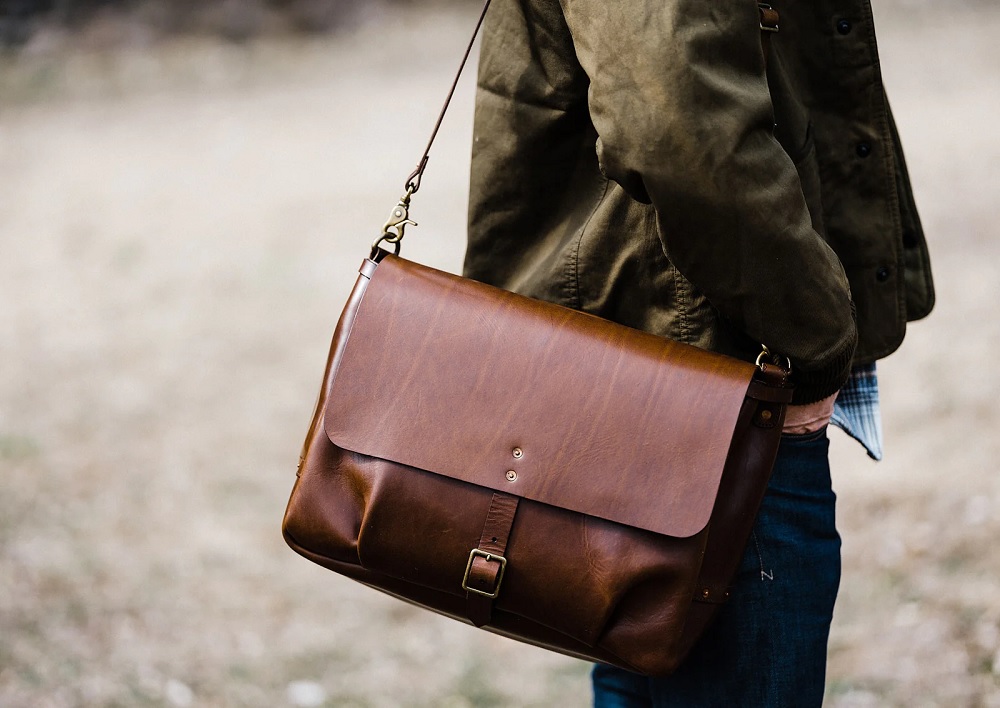In the vast and ever-evolving world of fashion and accessories, the humble messenger bag has stood the test of time, evolving from a practical item used by couriers to a stylish accessory coveted by fashion-forward individuals worldwide. Central to this evolution is the leather messenger bag, a symbol of durability, style, and now, environmental responsibility. As the leather goods industry faces increasing scrutiny over its environmental impact, there’s a significant shift towards more sustainable and eco-friendly practices, particularly in the realm of messenger bags.
The Shift Towards Eco-Friendly Leather
Leather has long been prized for its durability, versatility, and aesthetic appeal. However, traditional leather production processes have raised environmental concerns, primarily due to the use of harmful chemicals in tanning and the high carbon footprint associated with cattle farming. In response, the industry is innovating with more sustainable practices, such as the use of vegetable-tanned leather, which utilizes natural substances like tree bark instead of chemicals. This not only reduces harmful waste but also imparts the leather with a unique, natural patina that ages beautifully over time.
Ethically Sourced Materials: A New Standard
The journey of a leather messenger bag begins long before it reaches the crafting table, with the sourcing of materials playing a pivotal role in its environmental impact. Recognizing this, many manufacturers are now prioritizing ethically sourced leather, which ensures that the materials are obtained in a way that respects animal welfare and minimizes environmental damage. This approach often involves using leather from animals raised in sustainable farming systems or repurposing leather from industries that would otherwise discard it, thereby reducing waste and promoting a more circular economy.
Embracing Environmentally Conscious Manufacturing
The commitment to sustainability extends beyond the materials themselves to encompass the entire manufacturing process. Eco-friendly production methods are becoming the norm, with manufacturers reducing water and energy usage and minimizing waste. Many are also adopting renewable energy sources, such as solar or wind power, to further decrease the carbon footprint of their operations. Additionally, the adoption of biodegradable packaging and the promotion of bag recycling programs are further testament to the industry’s commitment to environmental stewardship.
The Consumer’s Role: A Demand for Sustainability
The shift towards more sustainable leather messenger bags is not solely driven by manufacturers; consumers play a crucial role in this transformation. As awareness of environmental issues grows, so does the demand for products that not only look good but also do good. Shoppers are increasingly seeking out brands that align with their values, favouring those that are transparent about their sourcing and manufacturing practices and that contribute positively to the environment.
The Future Is Green
The leather messenger bag, a staple in the world of accessories, is undergoing a remarkable transformation, reflecting a broader movement within the fashion industry towards sustainability. Through the adoption of eco-friendly materials, ethically sourced leather, and environmentally conscious manufacturing processes, the industry is not just responding to the demands of the conscious consumer but is also playing a part in preserving the planet for future generations.
As we look to the future, it’s clear that the leather messenger bag will continue to evolve, embodying not just style and functionality, but also a commitment to environmental responsibility. In this new era of fashion, sustainability is no longer a niche trend but a fundamental principle that guides the creation of every bag. And as consumers, we have the power to support this transformation, choosing products that help us look good while doing good for the planet.


